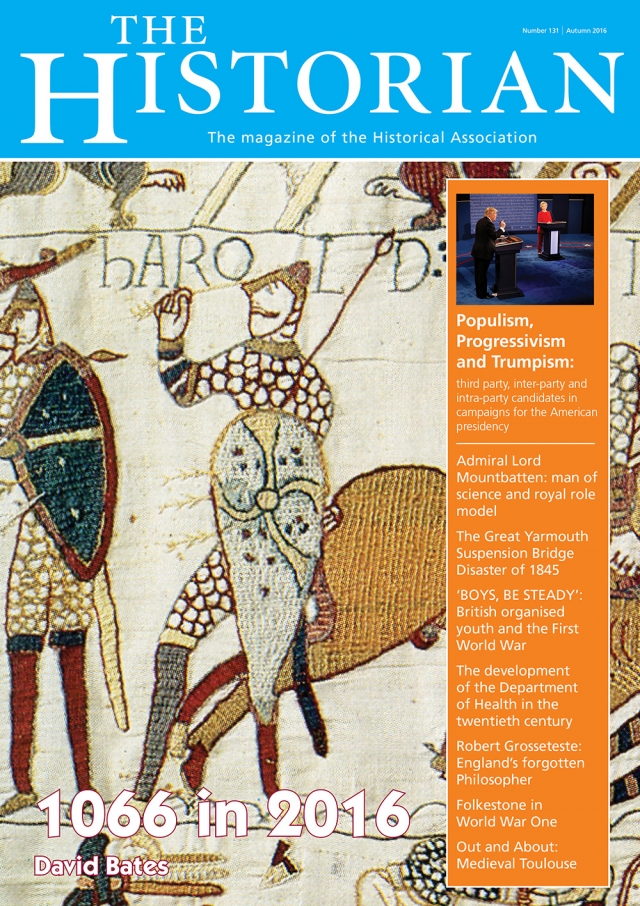The Historian 131: Out Now
Journal News

1066 in 2016
The Historian’s unique status as a membership journal brings with it many advantages deriving from its position in the voluntary sector. I t means, for example, that all our contributors are volunteers who share the wider membership’s enthusiasm for history in all its forms. Feedback from members reveals that they relish the opportunity to learn about modern-day research in the very accessible manner that we seek to offer. We do welcome feedback from our members and I can assure readers that they regularly offer their thoughts. Sometimes it is not possible to please everyone: at one point there were complaints that too much editorial space was being devoted to thanking and applauding the work of our contributors but, when I responded to this criticism, by removing this element, there was a series of pointed remarks to the effect that insufficient recognition was being devoted to our volunteer contributors!
For this edition we are trying to be very topical in two distinct ways. David Bates is helping us to commemorate the 950th anniversary of the Battle of Hastings, which has been very much in the public mind, by exploring contemporary research into what exactly happened and why; and Michael Dunne continues to relate the controversies of contemporary American politics to a broader canvas of more long-term patterns and experiences. Hugh Gault’s consideration of governmental involvement in the management of health services also touches on a matter which some might regard as a controversy of our times. We also enjoy items which address a topic about which we believe we are well informed and then manage to reveal to us that what we thought we knew can be turned on its head. T his is particularly true of Adrian Smith’s article
on Mountbatten and Jack Cunningham’s piece on Robert Grosseteste, both of which offer unexpected insights.
Given the Historical Association’s continued commitment to the study of local history we have provided an examination of the Great Y armouth Suspension Bridge Disaster of 1845; the contribution of two local women to the care of servicemen travelling to and from France through Folkestone in the Great War; and a study of the surviving N uneaton grammar school structure. T he study of local history, however, is not restricted to Britain: David Pearse’s study of medieval Toulouse was a very welcome contribution and points the way to further studies of this variety.
The final article to mention is John Springhall’s investigation into uniformed youth organisations during the Great War. T his is being published posthumously as a tribute to a very committed contributor to, and supporter of, The Historian. He had supplied the text and the recommendations for the illustrations shortly before he died. What he has written sits very well with his whole series of articles on popular culture over the last decade, in his role as our most prolific contributor. On this occasion we did not have the opportunity for his customary clinical last-minute checking of what was to appear, so any blame for imperfection must lie with the Editor. We mourned his death previously but, after the event, we discovered that we should also be celebrating his association with the Historical Association for an extra reason, a very substantial legacy which, as always with all legacies, will be used to very good effect. The next edition of The Historian has Dave Martin as Guest Editor and then we shall publish a special edition, devoted to celebrating the life and work of Asa Briggs, a very illustrious and supportive member. Work on this edition is progressing well but my collaborator, Hugh Gault, and I would still be pleased to hear from anyone else who may wish to contribute a thought or an idea. If we are overwhelmed, we can always carry some material over to a future occasion or share it on-line.
As always, I shall be attending the Annual Conference, which is in Manchester in 2017, and I shall be pleased to meet anyone who wishes to discuss any aspect of what The Historian provides for our membership.

